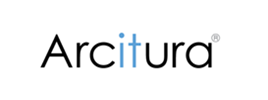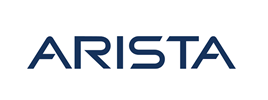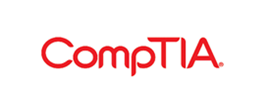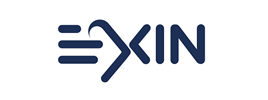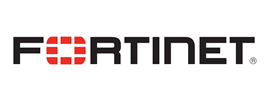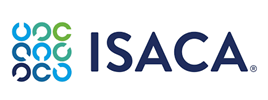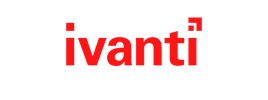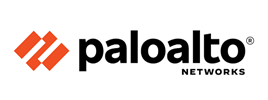- Course overview
- Course details
- Prerequisites
Course overview
About this course
This course covers the financial aspects of Dynamics 365: configure and use essential financial components, accounts payable, accounts receivable, collections, budgeting, fixed assets, and additional functionality
Audience profile
A Dynamics 365 Finance Functional Consultant is responsible for performing discovery, capturing requirements, engaging subject matter experts and stakeholders, translating requirements, and configuring the solution and applications. The Functional Consultant implements a solution using out of the box capabilities, codeless extensibility, application and service integrations.
At course completion
You will be able to:
Understand and perform financial duties in Dynamics 365 Finance
Course details
Module 1: Financial Management
- Benefits of financial management
- Financial management
Module 2: Configure Currencies
- Introduction
- Setup legal entity currencies and conversions
- Configure and import currency exchange rates
- Practice lab
Module 3: Create Fiscal Calendars, Years and Periods
- Introduction
- Create fiscal calendars, years and periods
- Create date intervals
- Practice lab
Module 4: Configure Chart of Accounts
- Introduction
- Define and configure the chart of accounts
- Define and configure the financial dimensions
- Define and configure account structures and rules
- Practice labs
Module 5: Configure Ledger and Journals
- Journals and their setup
- Configure ledger and journal setup
- User journals
- Practice lab
Module 6: Configure Cash and Bank Management
- Introduction
- Bank transaction types and groups
- Setup cash and bank management parameters
- Configure banks and bank checks
- Deposit and refund checks
- Cash flow
- Practice Labs
Module 7: Use Cash and Bank Management
- Make deposits and perform payment reversals
- Use cash and bank management workspaces
- Practice Labs
Module 8: Configure Letters of Credit and Guarantees
- Introduction
- Configure letters of credit
- Configure letters of guarantee
Module 9: Perform Daily Procedures
- Learn about general ledger processes
- Create voucher templates
- Setup journal controls
- Practice Lab
Module 10: Intercompany Accounting
- Setup and use intercompany accounting
- Practice Lab
Module 11: Configure Ledger Allocations and Accruals
- Introduction
- Configure and apply accrual schemes
- Configure ledger allocation rules
- Practice labs
Module 12: Configure Sales Tax
- Understand tax engine components
- Practice lab
Module 13: Configure Accounts Payable
- Understand Task recorder functionality
- Configure accounts payable parameters
- Create and maintain vendors
- Configure accounts payable charges
- Configure and use positive pay
- Practice Lab
Module 14: Perform Accounts Payable Daily Procedures
- Introduction
- Process orders, invoices, and payments
- Manage and apply prepayments
- Practice Labs
Module 15: Use Accounting Distribution and Invoice Validations
- Introduction
- Settle transaction and undo settlements
- Distribute funds
- Configure invoice validation policies
- Practice labs
Module 16: Configure Accounts Receivable
- Configure accounts receivable
- Create and maintain customers
- Setup customer posting profiles
- Configure accounts receivable charges
- Practice Lab
Module 17: Perform Accounts Receivable Daily Procedures
- Create free text invoices and record customer payments
- Settle transactions and undo settlement
- Practice Lab
Module 18: Configure Credit and Collections
- Introduction
- Configure credit and collections components
- Setup and manage interest
- Waive, reinstate or reverse
- Setup and manage collection letters
- Practice Lab
Module 19: Process Credit and Collections
- Introduction
- Understand how to process collections
- Manage customer credit and collections
- Practice Labs
Module 20: Configure PostDated Checks
- Introduction
- Manage post dated checks
- Practice Labs
Module 21: Configure and Use Basic Budgeting and Budget Control Processes
- Introduction
- Configure basic budgeting components
- Configure budget control components
- Create and test budget registry entries
- Use inquiries and reports
- Practice Labs
Module 22: Configure and Use Budget Planning Processes
- Introduction
- Configure budget plannign components
- Practice Lab
Module 23: Configure Fixed Assets Management
- Introduction
- Configure fixed asset components
- Enable fixed asset integration
- Create fixed assets
- Practice labs
Module 24: Manage Fixed Assets
- Introduction
- Perform fixed assets tasks
- Practice labs
Module 25: Configure and Use Cost Accounting
- Introduction
- Cost control workspace
- Practice lab
Module 26: Configure and Use Periodic Processes
- Introduction
- Bank reconciliations
- Configure financial period close
- Prepare periodic filings
- Run foreign currency revaluation processes
- Perform financial consolidations
- Process end of year close
- Practice Labs
Module 27: Configure the Electronic Reporting Framework
- Introduction
- Configure electronic reporting
- Formula designer in electronic reporting
- Practice Lab
Module 28: Configure Localized Features
- Introduction
- Localization and regulatory features
- Classification of Mexican localization features
- Understand the global tax engine
- Understand the features of fiscal establishments and documents for Brazilian localization
- Bill of Exchange
- Electronic Invoices
- Practice Labs
Module 29: Configure Financial Management for Public Sector
- Introduction
- Setup funds for the public sector
- Setup derived financial hierarchies
- Configure billing codes for free text invoices
- Practice Labs
Module 30: Course Conclusion
- Final assessment
- Course summary
- Post-course survey
Prerequisites
Basic accounting skillsCore competencies in Dynamics 365 Core
Enquiry
Course : MB-310: Microsoft Dynamics 365 Finance
Enquiry
request for : MB-310: Microsoft Dynamics 365 Finance

